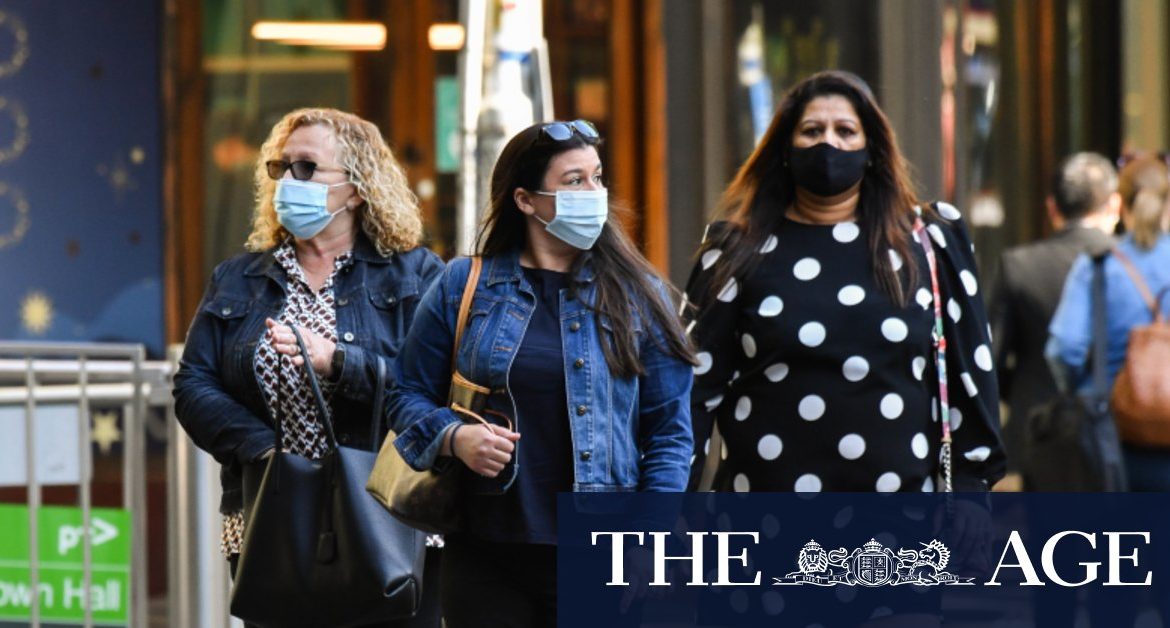South Australian authorities announced they had detected a further two cases in the state overnight, a young child and man in his 30s, who were isolating when their diagnoses was received.
On Saturday morning Premier Daniel Andrews published a friendly reminder on Facebook that face coverings are still required inside enclosed areas, and in situations where people cannot socially distance.
Loading
“Good morning to everyone except those wearing their mask under their nose at the supermarket,” the post said.
It could be months before Melburnians can return to the office en masse, with epidemiologists cautioning against unleashing the city’s entire workforce until it is clear why fragments of the virus continue to surface in wastewater.
Particles of the virus were detected this week in wastewater collected in Geelong’s north, causing concern among health officials as there have been no recent cases in the area.
Viral fragments have also been detected in wastewater in Altona, Benalla and Portland in recent weeks, but increased testing of residents and visitors in these areas has failed to reveal anyone with the virus.
“Before we consider opening up any further we need to know more about that residual virus being detected in the sewerage water,” University of Melbourne epidemiologist John Mathews said.
“In my view, the government are being too tight-lipped about it and we need more extensive information about why this is occurring,” Professor Mathews said.
People who have had coronavirus may shed the virus or virus fragments for several weeks in their stool, well beyond their infectious period.
Burnet Institute epidemiologist Mike Toole said traces of the virus in sewage water should be closely examined, but are not a cause for alarm.
“They have never found a full virus that is infectious and nobody has ever been infected by one of those fragments,” Professor Toole said, noting in China fragments of the virus have even been found on packets of frozen food, some which have travelled from Latin America.
Of all the human pathogens that have circulated the world in recent history, only smallpox has officially been deemed to have been eradicated globally, he said.
For measles, the World Health Organisation demands no community transmission for at least 36 months for it to be classed as eliminated.
Experts have also warned coronavirus has frequently re-emerged in states and countries where it was believed to have been eliminated, including New Zealand, which discovered a new cluster after being virus-free for 102 days.
South Australia had also seemingly eliminated the virus before it leaked out of hotel quarantine. South Korea, Vietnam, Israel and Hong Kong also experienced a spike in cases following months of low-level community transmission.
Catch all the day’s headlines
At the end of each day, we’ll send you the most important breaking news headlines, evening entertainment ideas and a long read to enjoy. Sign up here.
David Estcourt is a court and general news reporter at The Age.
Melissa Cunningham is The Age’s health reporter.
Most Viewed in National
Loading







